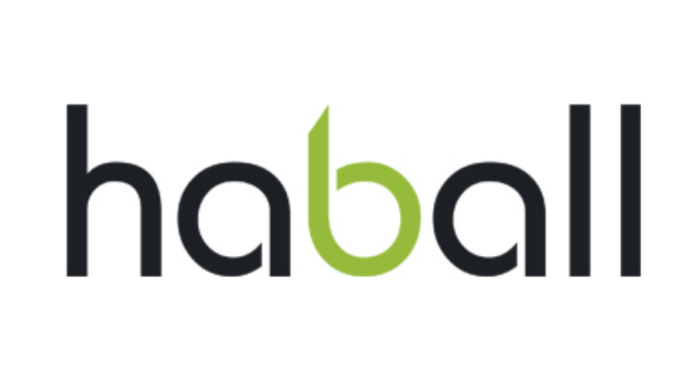In a country where most businesses still run on paper and trust, digitization is not just a disruption, it’s a rebellion. Receipts are recorded in ledgers, payment cycles stretch into weeks, and cash physically moves from hand to hand in envelopes. In this deeply analog system, Omar bin Ahsan saw not just inefficiency, but an opening.
Today, that opening has turned into a $52 million bet on the future of digital financial infrastructure in Pakistan’s B2B economy. And Haball, the company Omar bin Ahsan founded in 2017, is no longer the under-the-radar platform it once was. It’s the fintech that has successfully risen after keeping steady for years, and survived the funding drydown. It is quietly transforming how businesses move money.
It’s fitting then, that the company’s name, Haball, means “jugular vein” in Arabic. And that’s exactly what it plans to become: a vital conduit in the country’s economic bloodstream.
A very deliberate and quiet fundraising journey
Unlike the fanfare that often surrounds large funding rounds in the startup world, Haball’s $52 million pre-Series A raise reflects a markedly different approach. It is measured, strategic, and quietly executed over several years.
Since its founding in 2017, Haball has maintained a disciplined fundraising strategy, resisting the temptation to raise aggressively in favor of a more deliberate and sustainable path. The total raise comprises $5 million in equity and a substantial $47 million in debt financing.
The equity component was led by Zayn VC, a key VC in Pakistan’s early-stage venture capital ecosystem and an early backer of Haball. The round also drew support from Majlis Advisory SPV, several influential private investors from Saudi Arabia, select angel investors, and a notable Pakistani business conglomerate, according to the company.
The lion’s share of the $47 million (off-balance sheet) came from Meezan Bank, Pakistan’s largest Islamic bank, in the form of strategic financing. This component too came in tranches in Haball’s bank account over a few years. Meezan’s backing not only provides capital but also validates Haball’s shariah-compliant operating model, something particularly relevant as the company looks toward expansion in the Gulf.
On the flipside, it also signals that Meezan Bank is now bullish on supply chain financing after the State Bank mandated that the commercial banks either establish their own digital supply chain financing functions or partner with a fintech company to do so.
What sets this round apart is not just the size, but the pacing. Haball raised this capital incrementally over the past few years, with each tranche closely aligned to specific milestones, whether revenue growth, product development, regulatory compliance, or deploying sales teams to onboard clients. The company chose to publicly announce the complete raise only now, signaling that it’s entering a new phase of growth focused on consolidation in Pakistan, and an entry into the GCC.
This approach has not only protected Haball’s cap table by reducing dilution but has also allowed it to build a business that tracks positive unit economics from the very beginning rather than investor burn, focusing more on long-term sustainability rather than short-term hype.
The seriousness seems to have paid off. Haballs now says it has over 8,000 SMEs in its network, and sits at the heart of several major supply chains: pharmaceuticals, FMCG, construction, energy, providing them payments and invoicing, and now lending facility. It counts the likes of Coca Cola among its clientele.
So what is Haball solving?
To understand what Haball is doing in the Pakistani market, you need to understand how deeply dysfunctional the average supply chain in Pakistan is. In an economy where even formal businesses often operate within the informal ecosystem, payment cycles are long, inventory is recorded and tracked manually, in memory or handwritten books, and access to formal credit is an unrealized dream for many businesses.
Roughly four to six days is a good guess for the average time it takes for a business-to-business transaction which includes an order, a payment, a credit adjustment to complete. Not because of lack of will, but because of systems that haven’t changed for decades. For both retailers and manufacturers, that delay means lost business and a constant scramble to manage liquidity. For the entire economy, it’s a bottleneck. It’s a systemic problem.
“The supply chain is the head of the beast,” Omar had told me in an earlier conversation. “If it’s slow, the whole system is slow.”
Before launching Haball, Omar wasn’t pitching VCs or creating apps. He was working with the Federal Board of Revenue (FBR), designing digital tax collection systems. His consulting work led him to the realization that Pakistan’s payment systems were fragmented, monopolized, and entirely unsuited for digitization without a unified layer.
What he envisioned was an agnostic payment platform, one that could integrate with any bank, any distributor, any ERP system, and provide a seamless interface for real-time B2B payment transactions. Not just payments, but a platform that could store catalogs, manage invoicing, offer digital ordering, and eventually unlock financing.
He pitched it. He built it. And then he convinced the most important institution in Pakistan, the SBP to back it in the form of a funding grant in 2019.
Haball’s approach to solving the problems in the supply chain is three-tiered. Through three core revenue streams that collectively power its platform and market position. First, as a payments aggregator, Haball enables seamless, digital payments between manufacturers and SMEs, streamlining the flow of funds across fragmented supply chains. This solution reduces cash handling, improves reconciliation, and drives transparency.
Second, through its digital invoicing service after securing a license from the FBR, the company automates invoice generation and real-time visibility for manufacturers and distributors, addressing long-standing inefficiencies in the B2B invoicing lifecycle. The invoices give the context of the payments by giving details of the transaction such as what inventory was sold and bought.
The data from payments and invoicing eventually gives Haball the ability to lend to businesses and that too in a Shariah-compliant manner. The startup has on its board prominent members from the Islamic finance community.
Finally, Haball’s supply chain financing offering allows SMEs to access working capital by enabling early payments on approved invoices, helping businesses manage liquidity and growth. In both payments and lending, Haball’s primary competition comes from commercial banks, which often lack the agility, SME focus, and shariah-compliant digital infrastructure that Haball provides.
The startup is also in the process to secure a license to become a PISP (payment initiation service provider) via Raast. Haball would be able to initiate digital payments directly from a customer’s bank account. With this license, Haball’s infrastructure becomes more bank-independent, allowing it to compete more aggressively on user experience, flexibility and innovation.
Haball plans to use the funding to deepen its infrastructure across the three aforementioned core areas: payments, invoicing and financing. The goal is to build a financial backbone that supports the businesses making up 60% of Pakistan’s GDP — manufacturers, distributors, and retailers operating in the B2B sector. By streamlining how money and data flow between them, Haball aims to make it easier for these businesses to send invoices, receive payments, and access financing.
Islamic supply chain financing is still in its early stages in the GCC, and Haball sees a major opportunity. With a homegrown, fully Shariah-compliant platform already tested and scaled in Pakistan, the company is well-positioned to meet the growing demand for ethical, interest-free financing options in the region. As Gulf economies push to support their SME sectors, Haball’s technology offers a ready-made solution for businesses looking to digitize payments, streamline invoicing, and access financing that aligns with Islamic principles.
Why is Haball winning?
Supply chain financing is not unique to Haball. It has been done before by names such as Finja which couldn’t be successful. On a question why Haball survived and how its survival will continue, the CEO advised to control the expenses, respect the macros and play safe and clean.
There are, however, particular differentiators in Haball’s approach. Firstly, it has spent many years slowly building the infrastructure in the form of payments and invoicing on which financing could be done, instead of getting to lending haphazardly. Secondly, as Omar says, the company has also remained prudent about its finances, raising only and when required, and spending also only and when required.
Thirdly, unlike many fintechs that attempted risky balance-sheet lending, Haball partners directly with regulated banks like Meezan Bank to provide the financing. This gives it access to deep liquidity without taking credit risk on its own books.






















